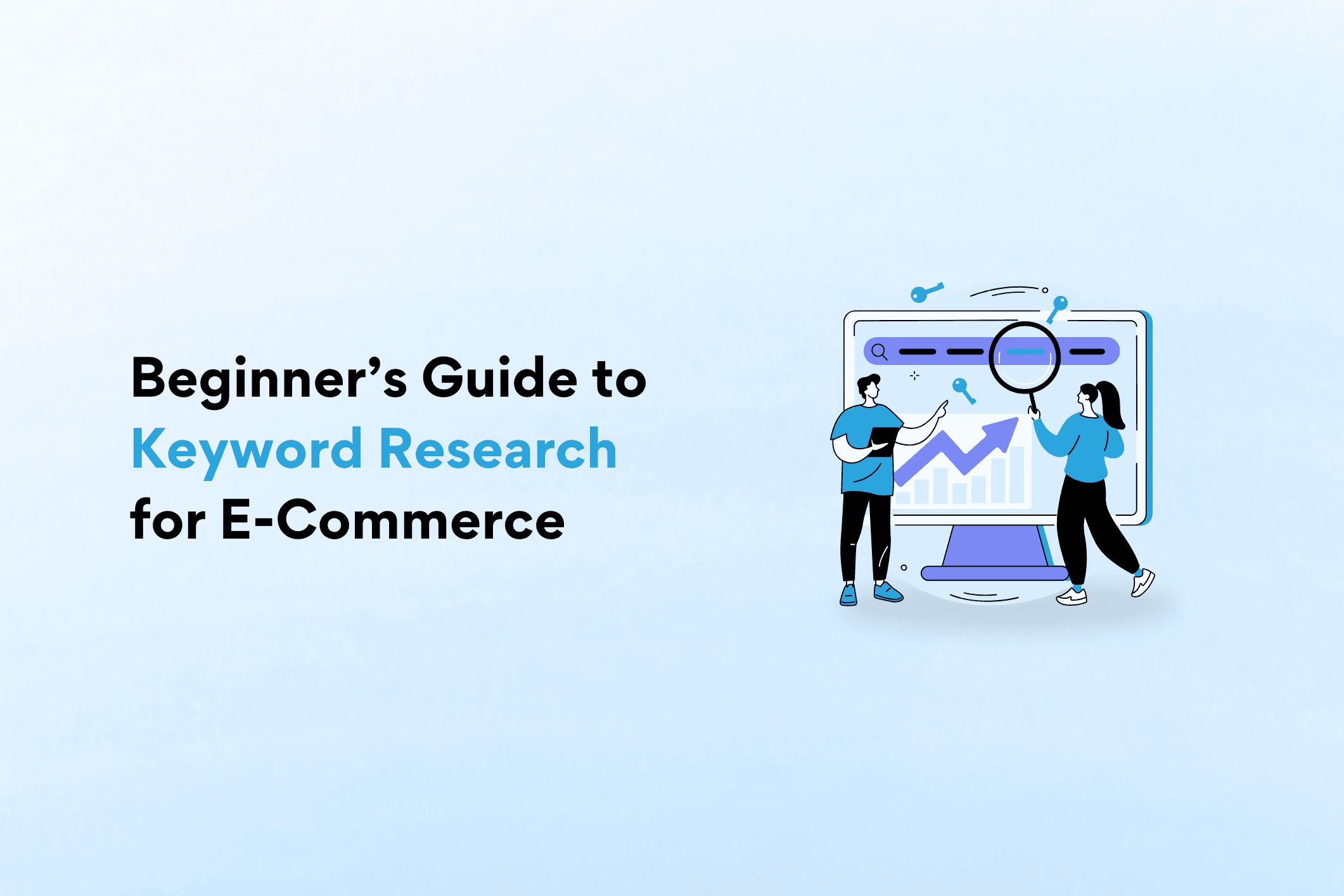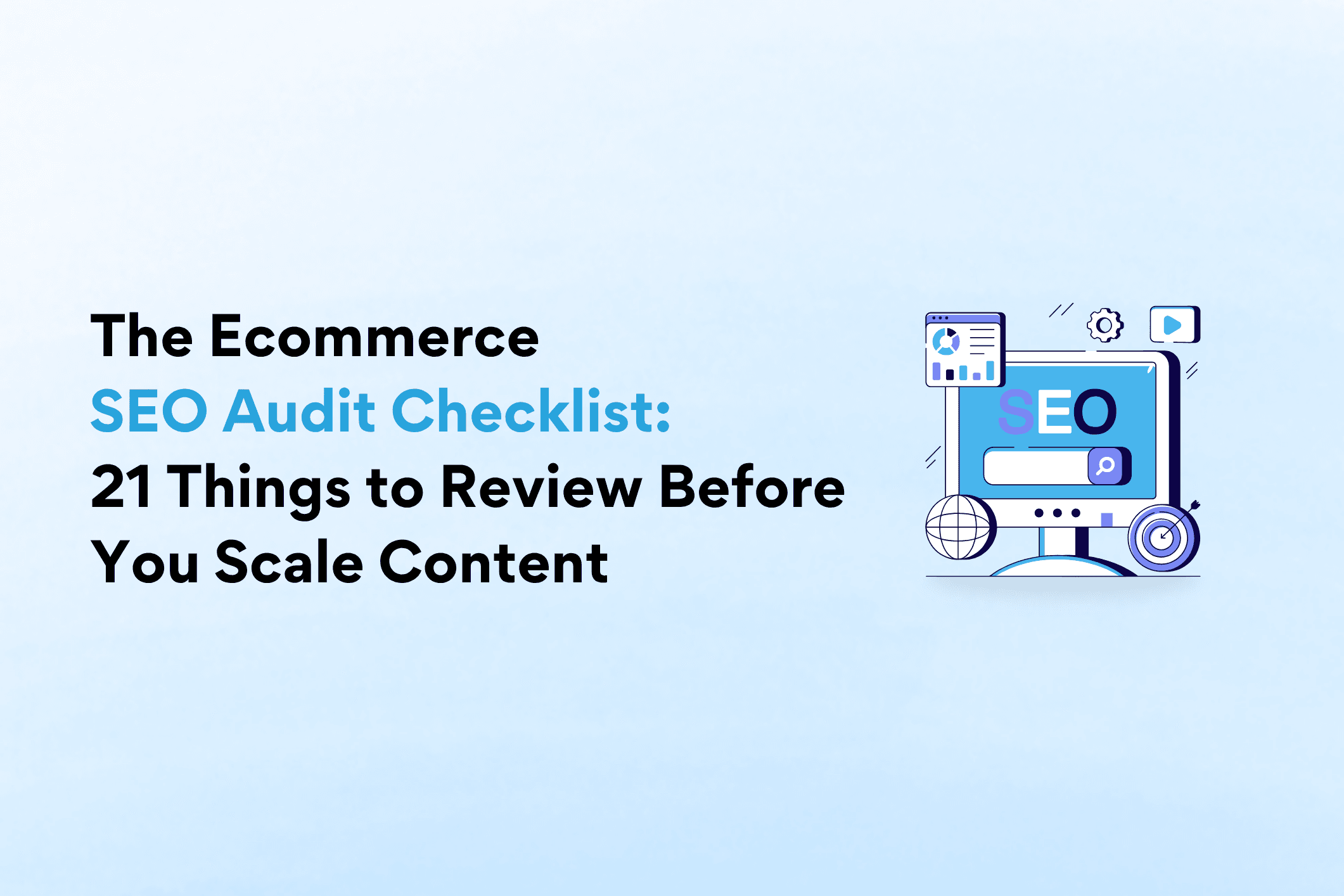Keyword research is a major part of a successful e-commerce marketing campaign. By having good keyword research, you are making sure that your products and services are discoverable. This brings in the right audience to your online store.
This all probably sounds great, but how do you get started? In this beginner’s guide, we’ll demystify keyword research, explore its importance, and provide actionable steps to help you dominate search engine results. So, let’s get started!
What Are Keywords?
Keywords are the words and phrases people type into search engines to find information, products, or services. For e-commerce specifically, keywords might include product names, categories, or attributes like “waterproof hiking boots” or “organic cotton sheets.” These terms act as the bridge connecting potential customers with your website.
Why Is Keyword Research Important?
Keyword research is really important when it comes to success in e-commerce because it ensures you’re targeting the terms your audience is searching for. Here’s why keyword research matters:
- Visibility: It helps your website rank higher in search engines, making it easier for customers to find you.
- Relevance: Ensures you meet customer needs by understanding what they’re looking for.
- Efficiency: Allows you to focus your resources on high-impact keywords that drive traffic and sales.
- Competitiveness: Keeps you informed about the market landscape, helping you outperform competitors.
Without keyword research, your marketing efforts could fall flat. This could result in low website traffic and missed sales opportunities.
Types of Keywords in E-Commerce
In order to be successful in this space, you need to understand the types of keywords that can be used in a well-rounded strategy:
- Head Keywords: Short, generic terms like “shoes” or “backpacks.” They generate high search volumes but are extremely competitive.
- Long-Tail Keywords: Longer, more specific phrases, like “waterproof hiking boots for women, “ have lower search volumes but are easier to rank for and often lead to higher conversions.
- LSI Keywords: Latent Semantic Indexing keywords are terms related to your primary keyword. For example, for “camping gear,” LSI keywords might include “tent accessories” or “sleeping bags.” These enrich content and help search engines understand the context.
What to Look for in E-Commerce Keywords
If you’re using a tool to find keywords, it’s more than likely you’ll be presented with a list. You usually can’t use them all. So you’ll need to consider the following:
- Search Volume: High enough to drive traffic but not so high that it’s overly competitive.
- Keyword Difficulty: Measure of how hard it is to rank for a keyword. Tools like Ahrefs or SEMrush provide this data.
- Relevance: Keywords should match your products and resonate with your target audience.
- Commercial Intent: Terms that indicate a buying intent, such as “buy,” “best,” or “discount.”
How to Conduct Keyword Research for E-Commerce
You’re probably thinking this all sounds great, but how do you even find keywords? Well, it’s not a terribly difficult process, but time and expertise really help in this area. Here’s a step-by-step process to find the right keywords:
- Make a List of Broad Topics: Start by listing categories relevant to your business. For instance, a clothing store might include “summer dresses,” “winter coats,” and “activewear.”
- Expand Each Topic: For each broad topic, brainstorm specific phrases customers might use. For “summer dresses,” consider terms like “boho summer dresses” or “cotton sundresses.”
- Find Related Search Terms: Use tools like Google’s autocomplete, “People Also Ask,” or “Related Searches” to identify additional terms.
- Conduct Competitor Research: Analyze competitors’ websites to uncover the keywords they rank for. Tools like Ahrefs or SpyFu can help identify these terms.
- Identify Keywords That Drive Sales: Focus on keywords with commercial intent. For example, “best deals on camping gear” or “where to buy fishing coolers” will likely attract buyers.
As you do keyword research, write content, and look at the results, you’ll become more practiced and able to spot better keywords with practice and time.
Keyword Difficulty: Why It Matters
So, what is keyword difficulty, and why does it matter? Keyword difficulty indicates how challenging it is to rank for a specific term. So, for example, high-difficulty keywords are often dominated by large, established brands. As a beginner, targeting low to medium-difficulty keywords is a more achievable and rewarding strategy.
Tips for Success
So, now that you have a little more knowledge, there are a few tips that can help you be more successful:
- Use Keyword Research Tools: Tools like Google Keyword Planner, SEMrush, or Ahrefs can streamline your research process.
- Analyze Search Intent: Ensure your keywords align with what users want—informational, navigational, or transactional.
- Refine Over Time: Continuously monitor keyword performance and adjust your strategy as needed.
Keyword research is the foundation of any successful e-commerce marketing strategy. Understanding your audience’s search behavior and strategically selecting keywords can drive targeted traffic, increase sales, and build long-term success.
Start with the steps outlined here, and watch your e-commerce store grow!
Greg is a digital marketing strategist, ecommerce owner, e-commerce marketing agency owner, and recognized leader in the D2C industry.
With 18 years of experience working with small, medium, and large organizations, Greg knows how to build and execute marketing strategies that drive growth.



